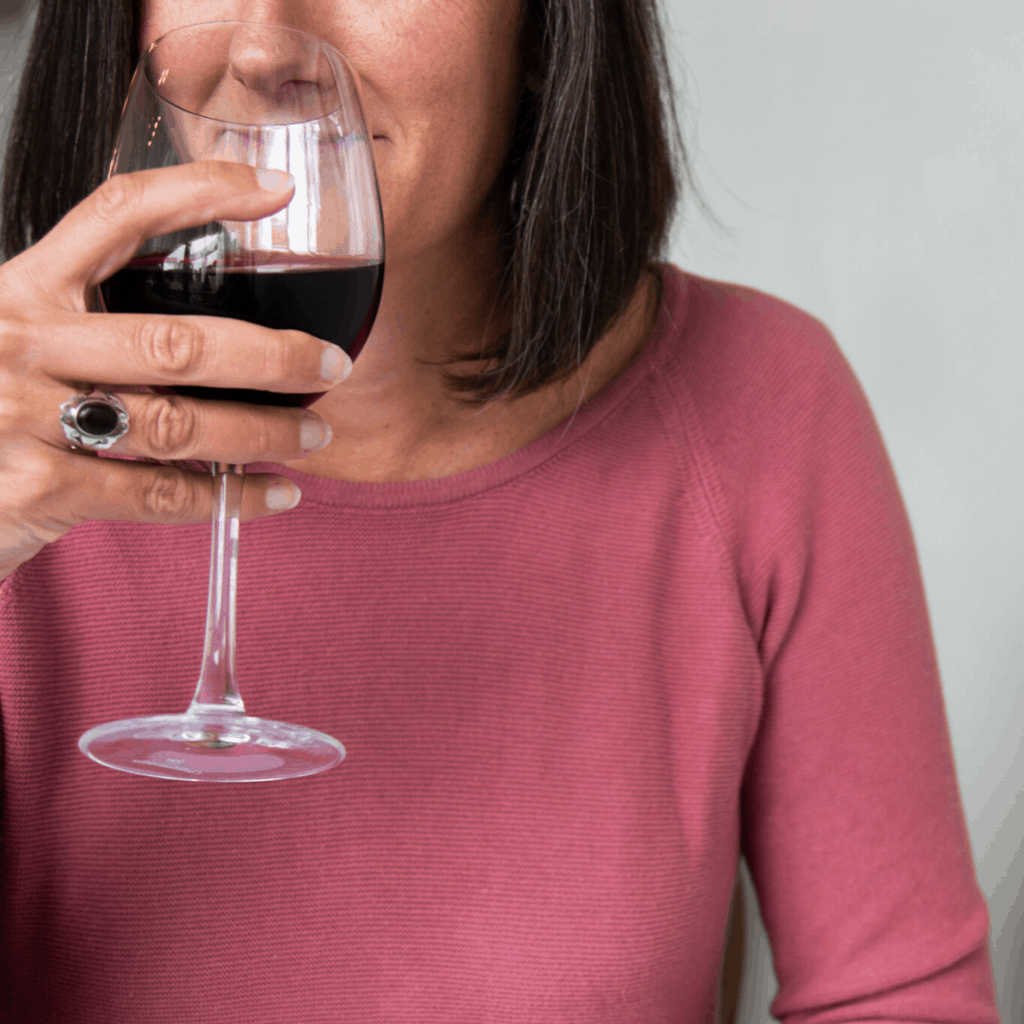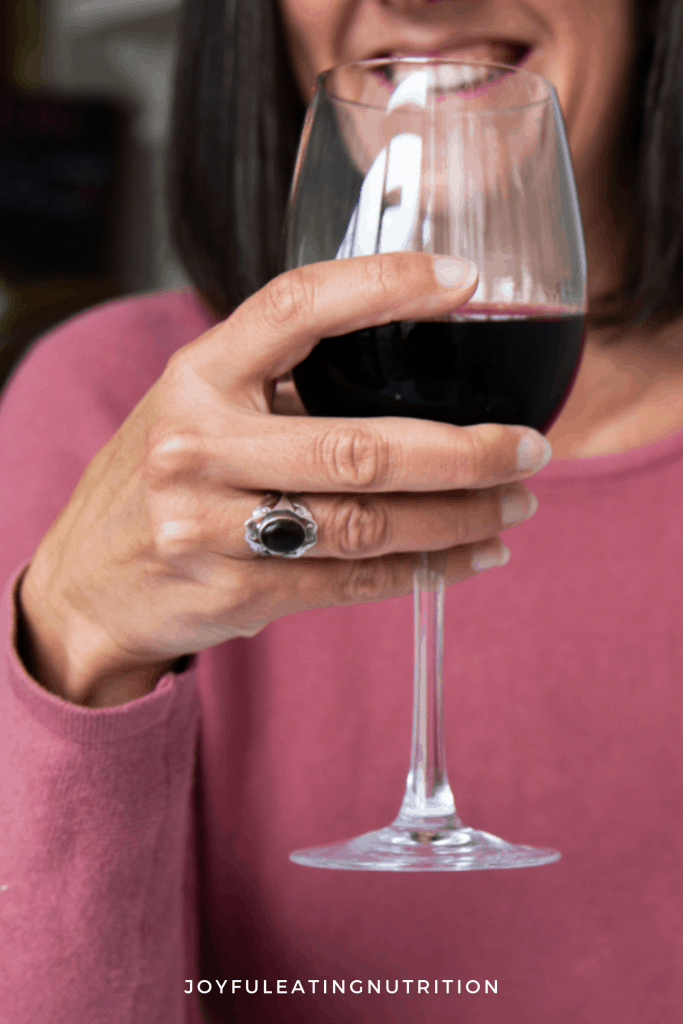You just have to open a diet book or fitness magazine to discover that the calories in the alcoholic drinks you consume can substantially add to your daily caloric intake.
Do you restrict your alcohol intake?
If we take on board the calories in our chosen alcoholic beverage, we may find ourselves abstaining when out with friends or counteracting the intake with our food choices, such as choosing a low-calorie meal or skipping eating altogether. Yet, how long can we keep this up? How healthy is this?
Does it lead to excessive drinking when you allow yourself to drink?
If we deprive ourselves of something that we enjoy, we’ll likely obsess over it until we give in to temptation.
Then, in our moments of weakness, we can justify our choice to drink by saying, ‘There are antioxidants in wine, right?’ or ‘I’ve had a tough week; I deserve a drink’. These are just stories we make up in our minds to justify the decision we have already made.
There are plenty of arguments for and against drinking alcohol, particularly wine, but at that moment of weakness, the arguments ‘for’ far outweigh those ‘against’.
How you can become a more conscious drinker
So, when it comes to alcoholic beverages, my tip is to become a conscious drinker.
When you come home from work and go to pour a drink or go to order a drink when out with friends, ask yourself, ‘do I really want this, am I truly going to enjoy this or am I having it out of habit, to fit in or to escape?’
If you choose to have a drink, accept this choice, and don’t beat yourself up about it. Rather, observe the colour, smell its aroma, take a sip to taste it, and observe how it feels and affects your body. Maybe you don’t really like the taste after all? Maybe after a few sips, you think ‘that’s all I really needed to get the feeling of having a drink’.

Be fully aware that you are drinking
Draw your attention to how it feels in your body. How does it affect you physically, mentally and emotionally? Maybe the sensations in the body feel good.
Then, before you pour another, tune in and ask yourself, ‘Do I need another? Am I drinking my second, third or fourth drink on autopilot? Will more to drink enhance these feelings or sever any awareness of my body’.
The amazing thing is, when you do this, you may find yourself automatically drinking less, without imposing rules, but rather tuning in to your own body.
Activate the pleasure response
The other thing about relaxing the ‘diet rules’ and being truly aware and enjoying our drink is that we can activate the pleasure or relaxation response in our body. Taking us out of the ‘fight and flight’ mode, where our blood pressure is elevated, our heart rate increased, and blood is shunted away from digestion. Thus, when we are relaxed, our digestion is improved, and we can better assimilate the nutrients consumed.
Yes, an alcoholic beverage will provide additional energy to your body. However, if you consume it slowly and mindfully, your body will register this energy input. Thus resulting in you drinking and eating less.
On the other hand, if you drink unconsciously to seek pleasure and escape the pain in your life, you may find yourself seeking pleasure in additional drinks and in some cases food.
Ask, why am I drinking?
So next time you head for a drink, ask yourself, is this habit? Am I really enjoying this? How much do I need to truly enjoy it?
By asking yourself these questions, your body will likely ‘tell’ you how many drinks are enough without you having to focus on the calories in your alcoholic drink of choice.
If you enjoyed this blog, you might also want to read How wine tasting can help us find our ideal diet.
Disclaimer: Please note that this blog is intended for casual drinkers who do not have an alcohol addiction but rather drink out of habit and wish to reduce their consumption. If you have an alcohol addiction, I encourage you to seek support from an appropriate professional.

